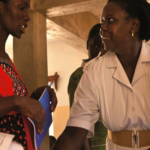New Delhi, August 16, 2018:
Former Prime Minister Shri Atal Bihari Vajpayee has been admitted for the last 9 weeks at AIIMS. Unfortunately his conditions has worsen over the last 24 hours. His condition is critical and he is on life support system. This statement was issued by Dr.(Prof.) Aarti Vij, Chairperson, Media & Protocol Division, AIIMS, Delhi on August 15, 2018.
All about Mechanical ventilation by Dr K K Aggarwal :
1. is indicated for acute or chronic lung failure, defined as insufficient oxygenation, insufficient alveolar ventilation, or both.
2. Mechanical ventilation can deliver different types of breaths, including volume control, volume assist, pressure control, pressure assist, and pressure support.
3. It can be invasive or noninvasive mechanical ventilation. Invasive positive pressure is sometimes referred to as conventional mechanical ventilation or traditional mechanical ventilation. It is delivered via an endotracheal tube or tracheostomy tube. In contrast, noninvasive positive pressure ventilation (NPPV) is delivered through an alternative interface, usually a face mask.
4. A trial of NPPV is done in patients with acute cardiogenic pulmonary edema or hypercapnic respiratory failure due to chronic obstructive pulmonary disease (COPD) who do not require emergent intubation and do not have contraindications to NPPV (eg, altered mental status, abundant secretions, emesis)
5. Prolonged mechanical ventilation (PMV) is defined by the Centers for Medicare and Medicaid Services in the United States as greater than 21 days of mechanical ventilation for at least six hours per day
6. The most common complications of PMV are related to infections or tracheostomy.
7. Patients requiring PMV should not be considered permanently ventilator dependent until three months of weaning attempts have failed.
8. Patients are considered difficult-to-wean if they fail their first spontaneous breathing trial (SBT) and then require up to three SBTs or seven days to pass an SBT. Up to 40 percent of patients mechanically ventilated for an acute illness in the intensive care unit (ICU) are difficult-to-wean.
9. Ventilator-associated pneumonia (VAP) is a type of hospital-acquired pneumonia that develops after more than 48 hours of mechanical ventilation.
10. IV antibiotics, Ryles feeding nasal tube, urinary catheter are a routine in a ventilator patient.







